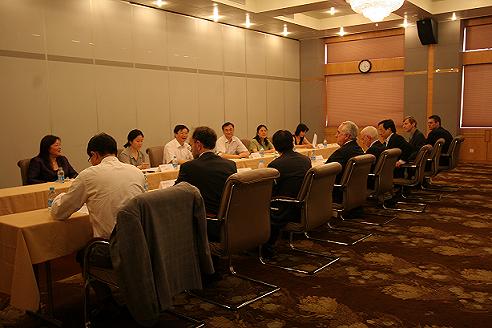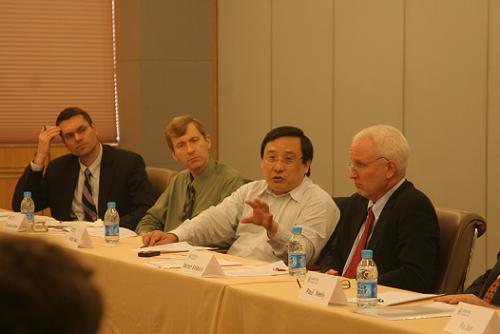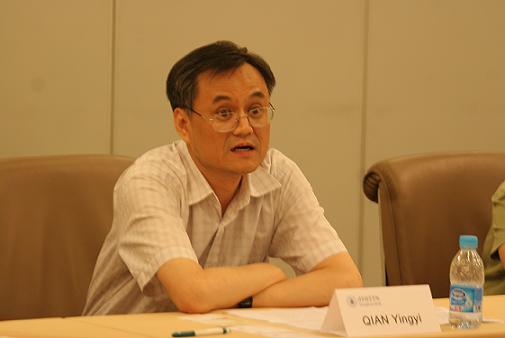A five-member delegation from Williams College, U.S. headed by Morton Owen Schapiro, president of the College has visited Tsinghua SEM on July 3, 2008 where the visiting US guests and their Chinese counterparts had a discussion on the future of liberal arts as a philosophy of education.

Williamstown is located in the Berkshires in northwestern Massachusetts, the United States. Williams is consistently ranked as one of the nation's top liberal arts colleges and its faculty noted for the quality of their undergraduate teaching. Established in 1793 with funds bequeathed by Colonel Ephraim Williams, the college is private, residential, and liberal arts, with graduate programs in the history of art and in development economics. The undergraduate enrollment is approximately 2,000 students. The Wiliams has a department of Asian studies, with three majors: Chinese, Japanese and Asia studies. During the talks, Williams representatives expressed their thanks for visiting Tsinghua, saying they enjoy the opportunity to exchange views and ideas of common concern with their Chinese counterparts.
The Williams delegation included Morton Schapiro, President of Williams College; Paul Neely, Trustee of Williams College; Cornelius Kubler, Chair and Stanfield Professor of Asian Studies, Williams College; Enoch Blazis, Senior Development Officer of Office of Alumni Relations and Development, Williams College; Jim Kolesar, Assistant to the President for Public Affairs, Williams College.

During an-hour-and-a-half-long discussion on liberal arts education, Williams visitors and the Chinese academicians talked about the significance of liberal arts as a philosophy of education, and its place in China."Liberal arts”, a term unfamiliar to the Chinese to some extent, is described in the Encyclopedia Britannica as a "college or university curriculum aimed at imparting general knowledge and developing intellectual capacities, in contrast to a professional, vocational, or technical curriculum". At the discussion, the attendees pointed out that liberal arts as a philosophy of education is needed, and should be promoted in China since the liberal arts education gives students a way of thinking, a perspective to view the world, and a way to analyze a problem instead of specific technical skills which may change with time evolving. The promotion of liberal arts education in China at present time, however, as the participants at the discussion have mentioned, is still facing some difficulties. Most of the Chinese are unfamiliar with the concept of liberal arts, and even there’s no fixed Chinese translation for liberal arts; in addition, affected by the legacy of central planning system, China’s education is relatively specialized; Chinese students have to choose their major before they go to college. And educators in China are facing pressure from the market, which may form another challenge for promoting liberal arts education in China.

The Chinese academicians attending the discussion included: Professor Qian Yingyi, Dean of Tsinghua SEM; Professor Qian Xiaojun, Assistant Dean of Tsinghua SEM ; Professor Luo Lisheng, Director ofOffice of International Cooperation and Exchange, Tsinghua University ; Professor Cao Li from the Department of Foreign Languages of School of Humanities and Social Sciences, Tsinghua University; Freda Wang, Asia Society China Representative; Fu Jun, Executive Dean of School of Government at Peking University; Victor Gao, Asia Society International Council Member and Director of China National Association of International Studies;Zhou Quan, Managing Director of IDGVC; and Zhang Xiaohua, Committee member of the Parents Fund in Williams College.
 Latest News
Latest News